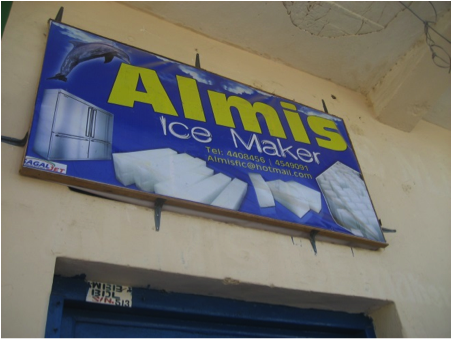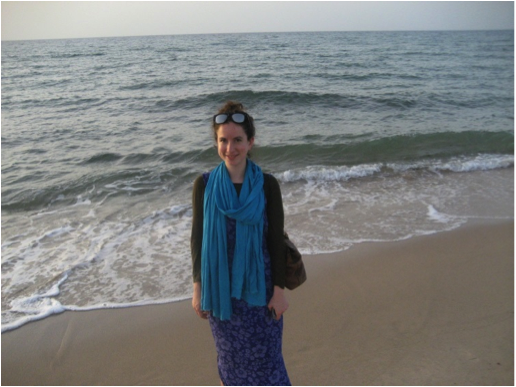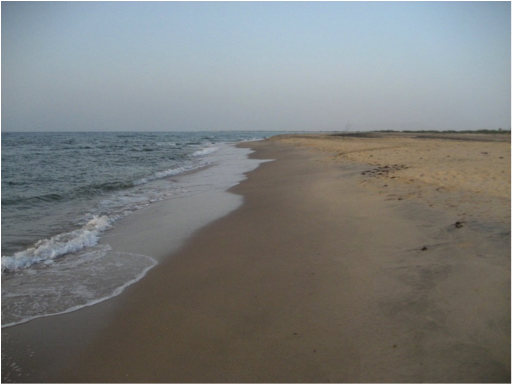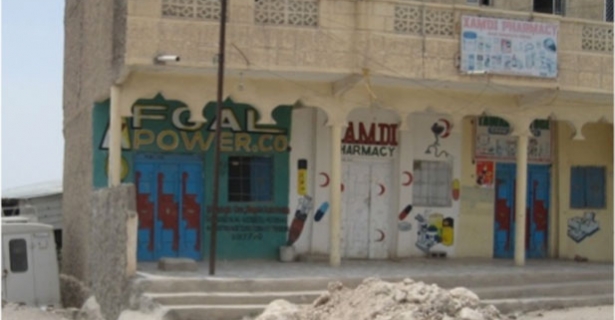Claudia Schwartz is a graduate student of the Fletcher School of Law and Diplomacy studying International Relations.
Update #2
As mentioned in my previous blog entry, I am currently in Hargeisa, Somaliland working on a start-up renewable energy company, Qorax Energy. Qorax is working to bring affordable solar energy to Somaliland to drive the country’s growth – allowing businesses to thrive and reducing the burden on households’ in terms of the amount of their incomes that they must spend on energy.
Currently, the energy sector in Somaliland is fragmented, to put it mildly. There is no one large energy utility company, either publicly or privately owned – each town, or neighborhood in a larger city such as Hargeisa, has its own independent power provider (IPP) which operates a diesel powered generator and may supply power to around 500 households.
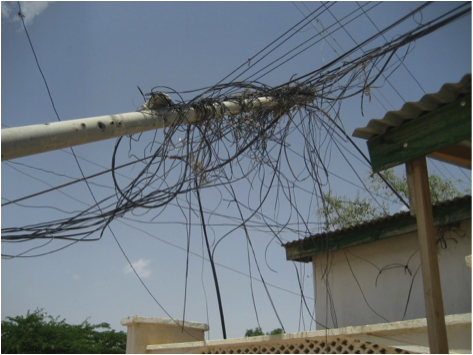
Electrical lines are installed somewhat haphazardly by the various IPPs, each serving its own customer base. There is no centralized authority or agency strictly regulating the sector, though the Somaliland government is currently developing a new energy law and framework.
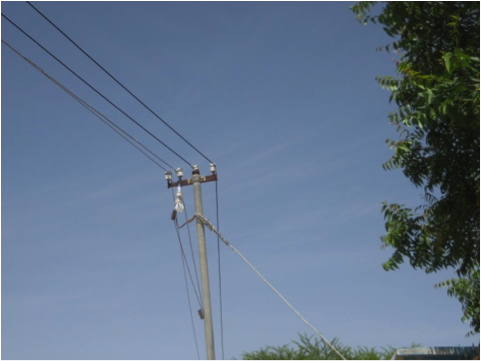
We were told that in this town, the reason that there are four electrical lines on each electrical pole is that there are four separate power providers, each serving different sections of the town. In many other countries, certain characteristics of industries such as electricity and water – including economies of scale and barriers to entry – have tended to create situations where it is only economically efficient to have one or two producers, leading to “natural monopolies.” This has not yet occurred in Somaliland, where many small providers exist instead of one large utility. Unfortunately, this increased competition has not resulted in lower prices, mainly because all providers are highly dependent on the price of imported fuel, which gives them little flexibility. Qorax is attempting to address this problem through access to clean, renewable, affordable solar energy.
I am learning a lot about the development of solar power projects – from how they are financed, to conducting market/demand analyses, to feasibility studies.
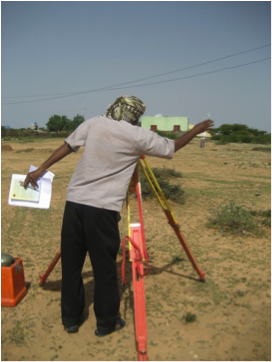
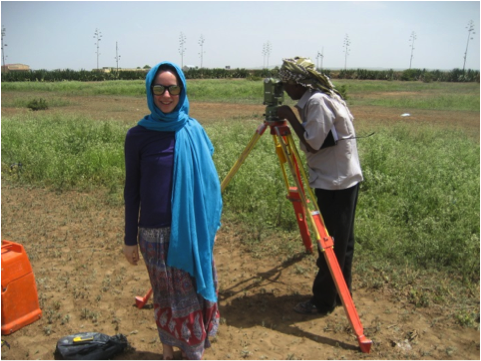
And for another little bit of excitement – my first time driving in Somaliland! Luckily many of the cars are automatic transmission here, and everyone drives on the right side of the road, though some cars have steering wheels on the left and some have steering wheels on the right.
Update #1
In Somaliland, the autonomous region in the northwest of Somalia, energy prices are some of the highest in the world, at $1 to $1.25 per kilowatt hour. Almost 99% of energy usage in Somaliland is fueled by petroleum, all of which must be imported, usually from the nearby Persian Gulf, and is used to fuel expensive diesel generators. Households spend on average over 35% of their incomes on energy, and energy costs are the number one reason cited for businesses failing. “Businesses failing” might not sound like such a rare occurrence to the general public, for whom Somaliland/Somalia may call to mind a conflict-ridden wasteland which is failing in general and where the business environment is the least of its problems. Yet the reality in Somaliland is quite different from this image; Somaliland actually has a stable state and a thriving business sector, in large part fueled by members of the returned diaspora. Providing access to affordable, sustainable sources of energy will be a major boost to the future economic development of Somaliland. I came to Somaliland to work with a company that is trying to do just that – Qorax Energy, a joint Somali-American start-up, which is working to develop solar power projects to bring alternative sources of energy to Somaliland households and businesses.
Providing affordable energy in Somaliland is inherently a social enterprise; it promises economic returns but is also providing an essential service that will benefit businesses, households and the wider community. The strength of the business sector in Somaliland is astonishing, but all businesses struggle with energy costs. For example, one man I met is in the process of starting an ice-making company in Berbera, Somaliland’s port in the north on the Gulf of Aden.
Ice is a high-demand commodity, especially given the port’s nascent fishing industry, but one which requires large inputs of energy. The owner estimates that if he runs the machine for three hours he can make one ton of ice, which will sell for $200*. However, running the machine costs approximately $1/kilowatt hour, so just running the machine for a normal workday will cost him $80 per day, which will significantly eat into his profits.
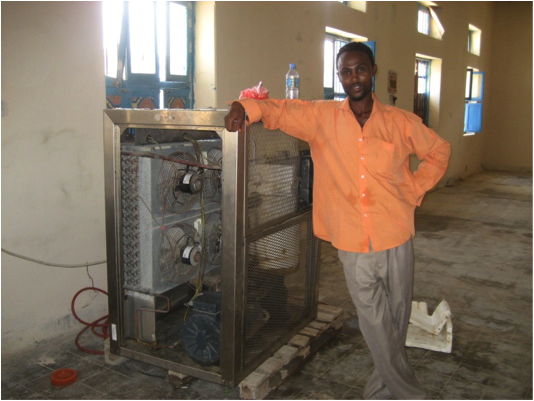
Qorax is working to assist businesspeople such as this by providing access to clean, distributed renewable energy generation projects. Qorax, which means “sun” in Somali, is focused on solar power, for which Somaliland is ideal, based on its location near the equator and annual irradiation patterns. One issue that solar energy developers in other developing countries have faced is the problem of what happens if something in the installation breaks down – if the solar developer has already left, and there is no local capacity to repair the malfunction, the installation will become useless. Qorax is addressing this problem by also developing a solar technician training workshop in cooperation with a local technical university. Currently in its pilot phase, two Somali engineering students in their final semesters are being trained in applied engineering skills specific to solar PV installations. In the next phase Qorax plans to provide international solar technician certifications.
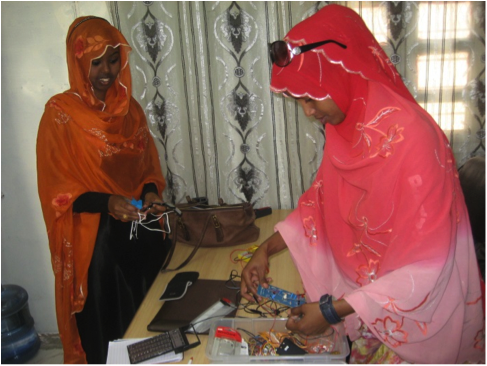
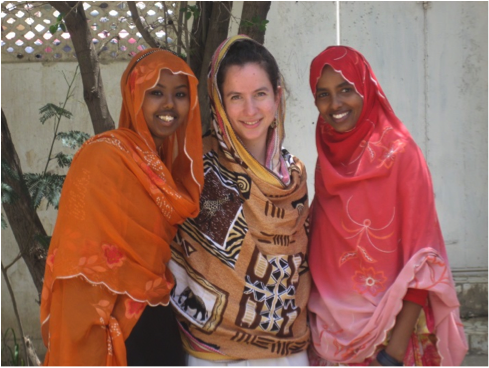
I came to Somaliland to support Qorax on the ground for a brief few weeks this summer, though I’ve been supporting them remotely for the past semester and will continue to do so throughout the summer. Currently, I’m working on helping to find potential partners, investors and suppliers for Qorax in both the local and international markets, including talking to companies who might otherwise not have considered Somaliland a viable business opportunity.
Right now I’m writing this from Hargeisa, the capital of Somaliland, where I’m spending my first “weekend” (the weekend is just Friday in Somaliland) drinking tea, attempting to communicate with the housekeeper Raxma (the “x” is silent of course!), and providing this update. In closing, here’s another highlight of the trip so far – my first trip to the Somaliland beach! This is Berbera, on the Gulf of Aden – who knows, maybe soon to be the best kept secret in beach getaways?
*This is not the local equivalent of $200, it is actually 200 American dollars – almost anything can be paid for in USD in Somaliland, giving it a slightly “Wild West” feel, although it does have its own currency, the Somaliland shilling.





